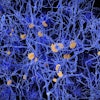Dear MRI Insider,
Artificial intelligence (AI) has promise for improving the performance of MRI and thus patient care -- an especially desirable goal when it comes to diagnosing and managing breast cancer.
In this edition's Insider Exclusive, we're drawing attention to research presented at the recent American Roentgen Ray Society conference that highlights concrete ways AI can improve breast MRI's performance by reducing unnecessary biopsies and predicting node metastasis.
When you've read that article, take a look at our coverage of other women's imaging MRI research, including a study conducted by a French team that shows how MRI can identify breast lesions where surgical removal is required for women with suspicious nipple discharge. In addition, data presented at the American Association for Cancer Research annual meeting suggest that using liquid biopsy with MRI could improve the accuracy of MRI alone, which could help clinicians better gauge a woman's breast cancer treatment response.
Check out these articles as well:
- How AI shows promise for helping doctors prioritize abnormal brain MRI results
- How a five-minute MRI protocol for imaging painful knee conditions works just as well as a 10-minute sequence
- How cardiac MRI could be used to screen for heart disease
- What diffusion-tensor MRI shows about the effects of anesthesia on the brain's white matter
Finally, discover what a Swedish team has to say about how fetal cardiovascular MRI offers useful information regarding congenital heart defects when echocardiography is inconclusive, and how MRI appears to aid in the early detection of gum disease.
This edition's Insider shows MRI's versatility and underscores the valuable clinical data it offers for a wide range of applications. Visit our MRI Community regularly to get up-to-date reports on just how this dynamic modality contributes to the screening, diagnosis, and treatment of disease.



.fFmgij6Hin.png?auto=compress%2Cformat&fit=crop&h=100&q=70&w=100)





.fFmgij6Hin.png?auto=compress%2Cformat&fit=crop&h=167&q=70&w=250)











